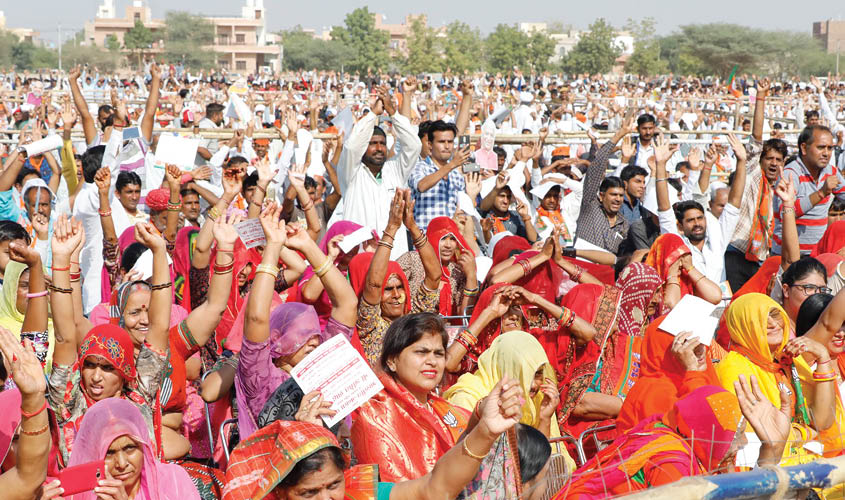New Delhi: As many as 15 candidates contesting the Rajasthan Assembly elections have two wives, say their affidavits. These candidates are mainly from the tribal belts of the state and seem to be continuing with the tradition of having two or more wives at the same time.
Rajasthan will go to the polls on 7 December for 200 Assembly seats.
Both the prominent parties in the state—Congress and the Bharatiya Janata Party—have given tickets to candidates who have two wives. These candidates are concentrated mainly in the Assembly constituencies in Mewar (Udaipur division), Barmer, Banswara and Jaisalmer districts of Rajasthan.
As per his nomination affidavit, BJP leader Khemraj Garasia, contesting from Bagidora Assembly constituency, has two wives—Subhadra Devi and Ratnani Devi. Other BJP leaders in the poll fray having two wives are Kailash Meena, who is contesting on a BJP ticket from Garhi constituency, and Udailal Dangi.
Nanalal Ninama, who is contesting on a Congress ticket from the Ghatol Assembly constituency of Banswara district, has declared in his nomination affidavit that he has two wives—Kaudi Devi and Nathi Devi. Another Congress candidate, Hukru Maida, has also declared in his affidavit that he has two wives.
Having two wives may be a matter of prestige or tradition for these candidates, but they have become the centre of debate in the state. These candidates are also facing criticism for continuing with the age-old tradition of polygamy in modern times, but they are not paying any heed to such criticism.
Kailash Meena told The Sunday Guardian: “It has been the tradition to have two wives; I am happily managing my life and there should not be any debate on this personal matter. The practice of having two wives has been going on since years and everyone in the country is free to carry on with their tradition.”
In Rajasthan, the young generation has stopped following the practice of having two wives. The tradition is only confined to elders, that too in certain villages that have a tribal population. Polygamy is outlawed in the country, but many political leaders and Bollywood stars like Mulayam Singh Yadav, Ram Vilas Paswan, Digvijaya Singh and film star Dharmendra are often cited when the issue of polygamy comes up. Mulayam Singh Yadav’s second wife was not acknowledged until February 2007, when the relationship was admitted in Supreme Court in a property dispute.
There have been many incidents of non-Muslim men converting to Islam to marry again. In December 2008, a controversy arose when the then Deputy Chief Minister of Haryana, Chander Mohan, and Anuradha Bali, the former Assistant Advocate General of Haryana, converted to Islam, taking the names Chand Mohammad and Fiza, so that Mohan could marry Bali as his second wife.
In 1955, the Hindu Marriage Act was drafted, which prohibited the marriage of a Hindu whose spouse was still living. Thus polygamy became illegal in India in 1956, uniformly for all of its citizens except for Muslims, who are permitted to have four wives (subject to the terms of the Muslim Personal Law [Shariat] Application Act of 1937) and for Hindus in Goa where bigamy is legal. A polygamous Hindu marriage is null and void. While the punishment specified in Articles 494 and 495 is applicable, it is rare if the first spouse does not have an objection. Sections 494 and 495 of the Indian Penal Code of 1860 have prohibited polygamy for Christians.

